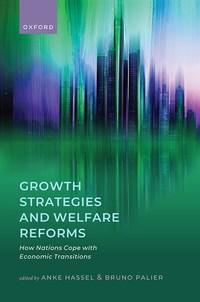 |
Bluhm, K., Dąbrowska, E., Brand, M. (2025). Beyond Energy Rents: Russia’s Conflicting Growth Strategies, Constrained Welfare State, and a Non-Dynamic Growth Regime. In Anke Hassel, and Bruno Palier (eds), Growth Strategies and Welfare Reforms: How Nations Cope with Economic Transitions, Oxford Academic, 267–302.
|
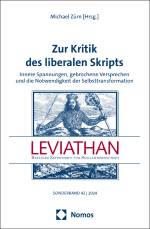 |
Bluhm, K., & Varga, M. (2024). Russlands Rechte. Zwischen Loyalität und Konfrontation. In Zur Kritik des liberalen Skripts (pp. 64-89). Nomos Verlagsgesellschaft mbH & Co. KG.
|
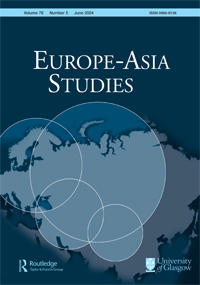 |
Klimovich, S., & Bluhm, K. (2024). Beyond Cronyism: Local Governance and Welfare Provision by Large Companies in Russian Monotowns. Europe-Asia Studies, 1–24.
|
|

|
Bluhm, K. (2023) Russland und Westen –Ideologie, Ökonomie und Politik seit dem Ende der Sowjetunion. Matthes & Seitz Berlin. https://www.perlentaucher.de/buch/katharina-bluhm/russland-und-der-westen.html
|
| |
Cătălin Buzoianu, Christian Sperneac-Wolfer, Sebastian Țoc (eds.): "Romanian workers, home and abroad: inequalities, social rights and labour struggles". Sociologie Românească 21 (1)
Cătălin Buzoianu (2023) "Social Counselling as Policy Intervention: Mediating Welfare Benefit Claims of Romanians in Berlin". Sociologie Românească 21 (1)
|
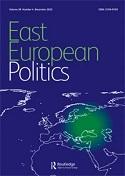 |
Bluhm, K./Kropp, S. (eds.): Symposium “Asymmetrical resource exchange. Business, state and social welfare provision in Russian regions”. East European Politics 39 (1)
Bluhm, K.; Kropp, S. „Introduction to the symposium “Asymmetrical resource exchange. Business, state and social welfare provision in Russian regions”. East European Politics 39 (1): 1–14. DOI: https://doi.org/10.1080/21599165.2023.2183498.
Pappe, U./Klimovich, S./Bluhm, K. (2022) Formal contracting and state–business relations in Russia. A case study from Khanty-Mansi Autonomous Okrug. In: East European Politics,
DOI: 10.1080/21599165.2022.2155948.
|
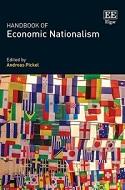 |
Bluhm, K./Varga, M. (2022) Illiberal Conservative Developmental Statism. In Pickel, A. (ed.): Handbook Economic Nationalism. Edward Elgar, 237-255,
DOI: https://doi.org/10.4337/9781789909043.00024.
|
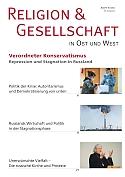 |
Bluhm, K. (2021) Sozialer Konservatismus und autoritäre Staatsvision in Russland. In: Religion & Gesellschaft in Ost und West (RGOW), 49 (10), 13-15.
|
| |
Varga, M. (2021, mit Aron Buzogány): Illiberal thought collectives and policy networks in Hungary and Poland, European Politics and Society, DOI: 10.1080/23745118.2021.1956238
|
| |
Glathe, J. & Varga, M. (2021) Trends of Radicalisation in Germany. July 2021.
|
| |
Glathe, J. & Varga, M. (2021) Cultural Drivers of Radicalisation in Germany. June 2021.
|
| |
Glathe, J. (2021) Stakeholders of (De-) Radicalisation in Germany. April 2021.
|
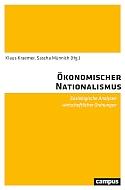 |
Bluhm K./Varga M. (2021) Konservativer Nationalstaat als Entwicklungsagentur – Ideenproduktion und Praxis in Polen, Ungarn und Russland. In: Kraemer K./Münnich S. (Hrsg.): Ökonomischer Nationalismus. Soziologische Analysen wirtschaftlicher Ordnung. Frankfurt/New York: Campus, 115-145.
|
| |
Glathe, J. (2021, zusammen mit Meier, Mutz, Hölzen): Increased output legitimacy by hosting mega sport events? The 2018 FIFA World Cup in Russian Twitter discourse. Im Erscheinen: Arnold, R. (Hg.) The 2018 World Cup in Russia. Routledge.
|
| |
Glathe, J. (2021): Voices from the Soviet Edge: Southern Migrants in Leningrad and Moscow. By Jeff Sahadeo. Ithaca: Cornell University Press, 2019. Eurasian Geography and Economics, DOI: 10.1080/15387216.2021.1882322
|
| |
Glathe, J. (2020): Knowledge, Power, and Trust: The Role of Experts in Russia’s Migration Regime. The Journal of Social Policy Studies, 18 (04), 751-764.
|
| |
Varga, M. (2020): Hungary’s rule by decree again defies the EU, ZOiS Spotlight 15/2020, https://en.zois-berlin.de/publications/hungarys-rule-by-decree-again-defies-the-eu
|
| |
Varga, M. (2020): The return of economic nationalism to East Central Europe: Right‐wing intellectual milieus and anti‐liberal resentment. Nations and Nationalism 27(1), 206-222, https://onlinelibrary.wiley.com/doi/full/10.1111/nana.12660
|
| |
Varga, M. (2020): Wissen über Landreform: die Weltbank und die Widersprüche ihres Wissensregimes [Knowing land reform: The World Bank and the contradictions of its knowldedge regime], in Nina Baur, Julia Fülling, Linda Hering and Elmar Kulke (Eds.), Waren - Wissen - Raum. Die Koordination von Konsumenten und Produzenten in Warenketten am Beispiel des Lebensmittelhandels [Commodities – Knowledge – Space. The coordination of consumers and producers in value chains at the example of food trade] Berlin: Springer.
|
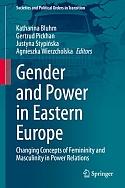 |
2020 Bluhm, K.; Pickhan G.; Stypinska J.; Wierzcholska A. (eds.): Gender and Power in Eastern Europe. Changing Concepts of Femininity and Masculinity in Power Relations. Cham: Springer. DOI: 10.1007/978-3-030-53130-0
|
| |
Varga M./Buzogány A. (2020): The Foreign Policy of Populists in Power: Contesting Liberalism in Poland and Hungary, Geopolitics, DOI: 10.1080/14650045.2020.1734564
|
| |
Varga M. (2020): Poverty reduction through land transfers? The World Bank's titling reforms and the making of "subsistence" agriculture, online first in World Development Vol. 135,
DOI: 10.1016/j.worlddev.2020.105058
|
 |
Franke, A., Stypińska, J. & Myrczik, J. (2020). Gründungsaktivitäten in der zweiten Lebenshälfte als hybride Performanz Älterer am Arbeitsmarkt? Ein Vergleich zwischen Deutschland und Polen. In: Frerichs F. & Fachinger, U. (Hrsg.) Selbstständige Erwerbstätigkeit und Erwerbskarrieren in späteren Lebensphasen. Vechtaer Beiträge zur Gerontologie. Wiesbaden: VS Springer, 45-68.
DOI: 10.1007/978-3-658-30463-8_3
|
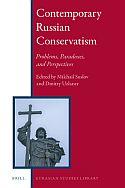 |
Bluhm, K. (2019): Postmodernity and Modernity as Political Terms in Russia`s New Conservatism. In: Suslov, M./Uzlaner D. (eds.): Contemporary Russian Conservatism. Problems, Paradoxes, and Perspectives. Leiden: Brill, 128-150. DOI: 10.1163/9789004408005_006
|
| |
Bluhm, Katharina/Varga, Mihai (2019): Conservative Developmental Statism in East Central Europe and Russia.
New Political Economy, July 2019,
DOI: 10.1080/13563467.2019.1639146.
|
 |
Töpfer, J. / Bergmann, Max Friedrich (2019): Jerusalem –
Berlin – Sarajevo. Eine religionssoziologische Einordnung
Amin Al-Husseinis. Wiesbaden: Springer VS.
|
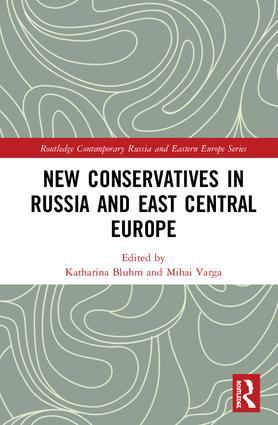 |
Bluhm, K. / Varga, M. (eds.) (2019): New Conservatives in
Russia and East Central Europe. Routledge.
Review by Eva Marlene Hausteiner
(Politische Vierteljahresschrift)
Review by Alicja Curanović
(Forum Transregionale Studien)
Review by Anna Schwenck
(Soziopolis)
|
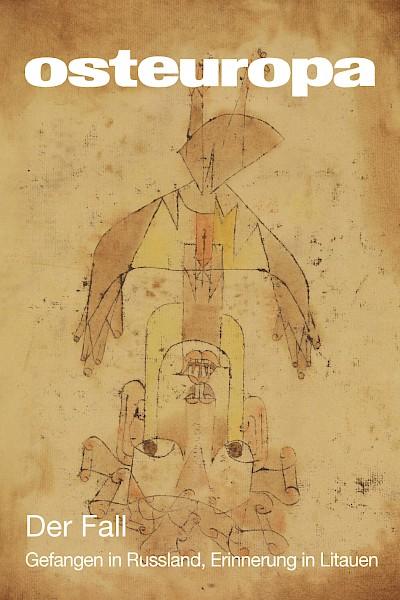 |
Katharina Bluhm (2018) Entwicklung mit Tradition Russlands konservative Gegenbewegung. In: Osteuropa 6/2018, S. 67–81. https://www.zeitschrift-osteuropa.de/hefte/2018/6/entwicklung-mit-tradition/
|
| |
Bluhm, Katharina (2018) Kein Populismus. Streit um Russlands neue Rentenreform. ZOiS Spotlight 27/2018, 18.7.2018, https://www.zois-berlin.de/publikationen/zois-spotlight/kein-populismus-streit-um-russlands-neue-rentenreform/
|
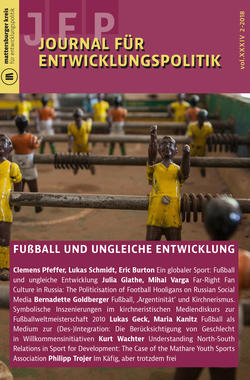 |
Glathe, Julia/Varga, Mihai (2018) Far-Right Fan Culture in Russia: The Politicisation of Football Hooligans on Russian Social Media. Journal für Entwicklungspolitik, XXXIV 2-2018, 20-49. http://www.mattersburgerkreis.at/site/de/publikationen/jep/vorschau
|
| |
Glathe, Julia (2018) Rassismus in der russischen Fan- und Hooliganszene. In: Bundeszentrale für politische Bildung: Dossier Russland, 10.6.2018.
|
 |
Trappmann, Vera; Seehaus Alexandra; Neumann, Denis (im Erscheinen): Rechtspopulismus und das junge Prekariat: potentielle AfD WählerInnen? In Becker, Karina; Klaus Dörre and Peter Reif-Spirek (Eds.) Arbeiterbewegung von rechts? Ungleichheit, Verteilungskämpfe, populistische Revolte. Fankfurt am Main: Campus. https://www.campus.de/buecher-campus-verlag/wissenschaft/soziologie/arbeiterbewegung_von_rechts-15137.html
|
| |
Seehaus, Alexandra und Vera Trappmann (im Erscheinen) Die Mitte als klassenloser Ort? Wie Jugendliche moralisieren und Prekarisierung rechtfertigen. In: Joller, Stefan und Marija Stanisavljevic (Hrsg.) Moralische Kollektive. Springer, Reihe: Wissen, Kommunikation und Gesellschaft.
|
 |
Glathe, Julia (2018): „Okolofutbolschiki“ und Fans gegen Rassismus, In: Felsberg/Köhler (Hg.) Russkij Futbol: Ein Lesebuch. Verlag die Werkstatt.
|
| |
Lorenzen, Jule-Marie; Schmidt, Lisa-Marian; Zifonun, Dariuš (Hrsg.) (Im Erscheinen): Methoden und Methodologien der Bildungsforschung. Quantitative und qualitative Verfahren und ihre Verbindungen. Weinheim und Basel: Beltz Juventa.
|
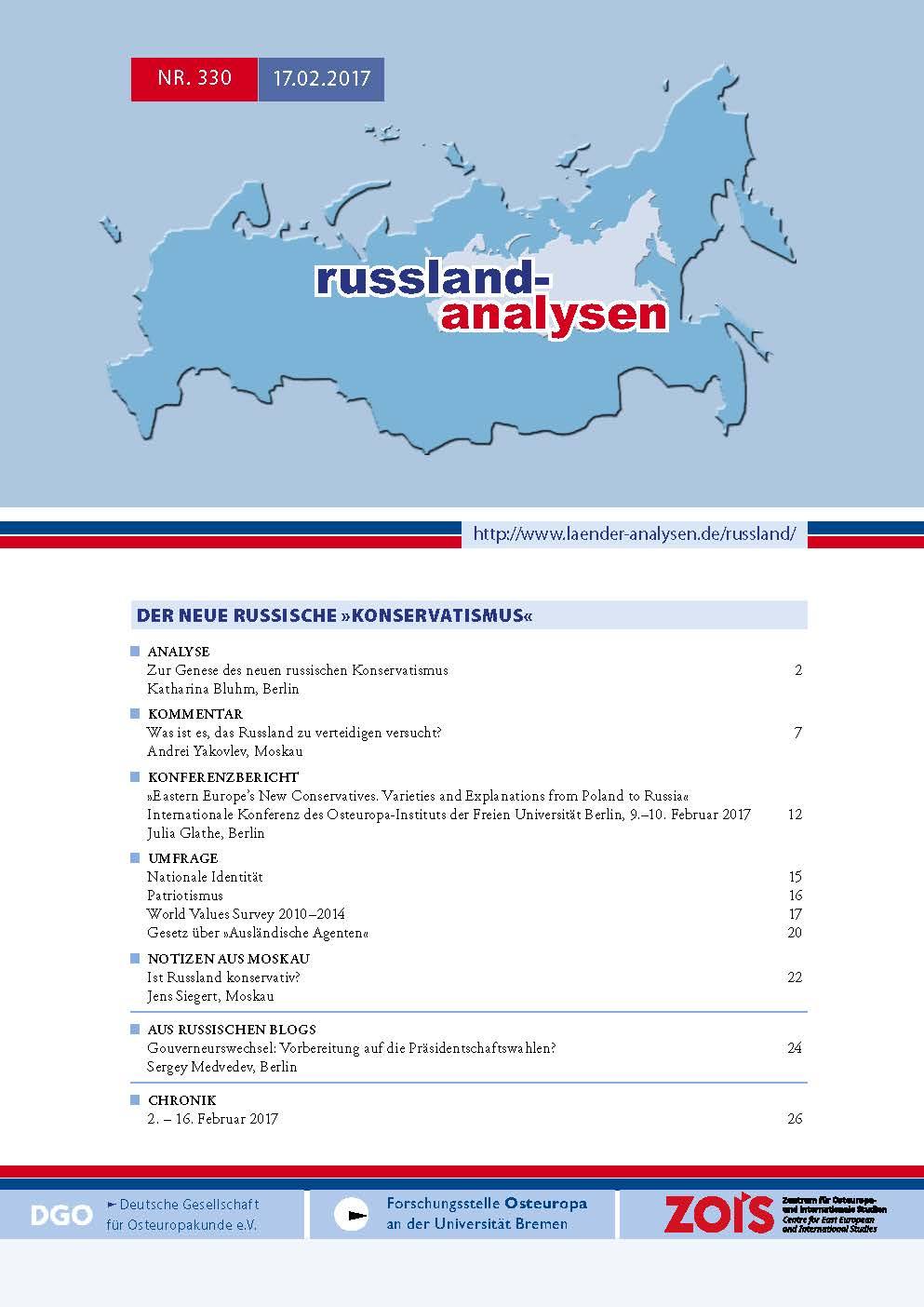 |
Bluhm, K. (2017): Zur Genese des neuen russischen Konservatismus, In: Russland-Analysen, Nr. 330 (2017), 2-7.
|
| |
Glathe, Julia (2017): Russia’s response to football hooliganism, ZOiS Spotlight, 15/2017.
|
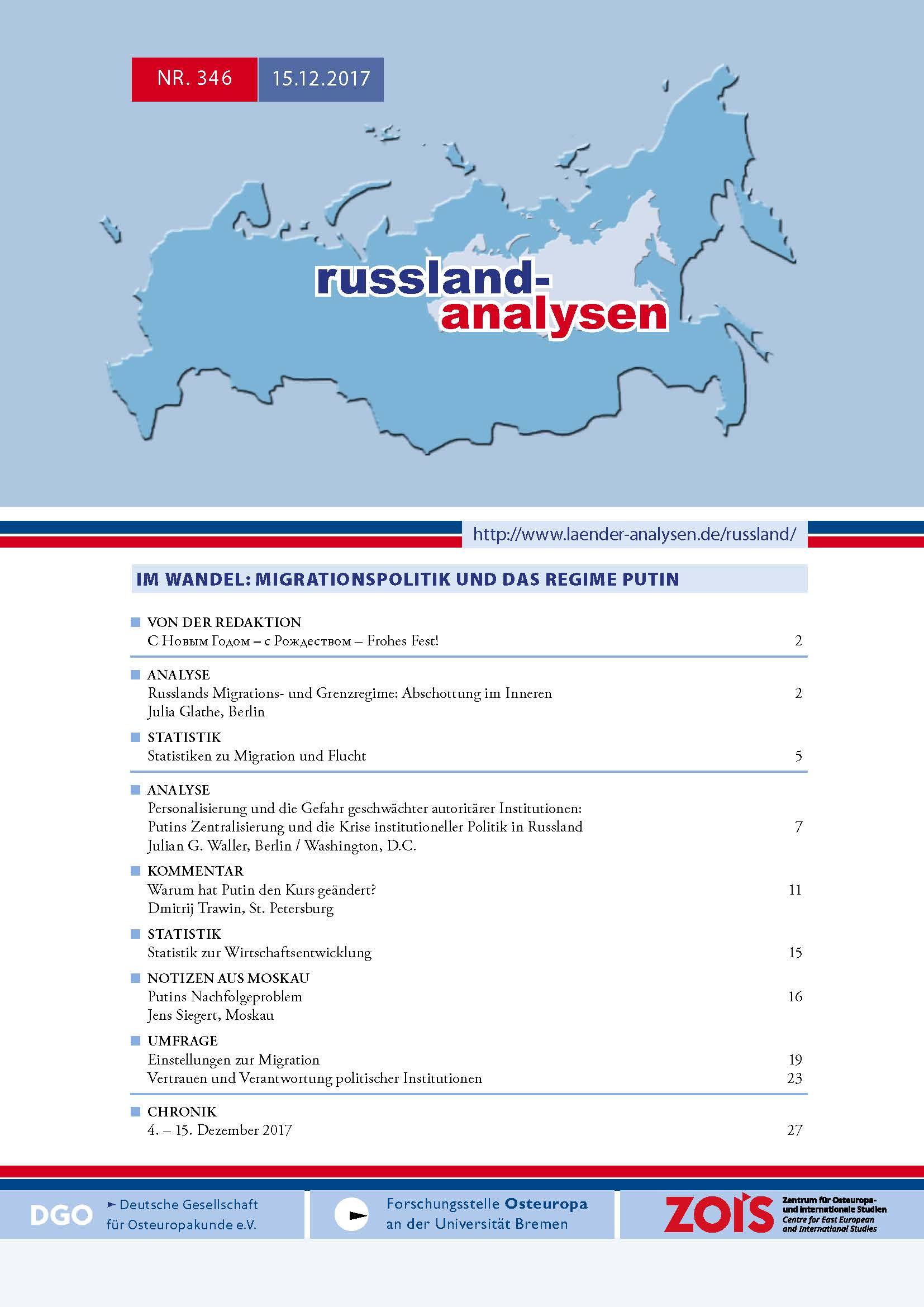 |
Glathe, Julia (2017): Russlands Migrations- und Grenzregime: Abschottung im Inneren. In: Russland-Analysen Nr. 346, 15.12.2017.
|
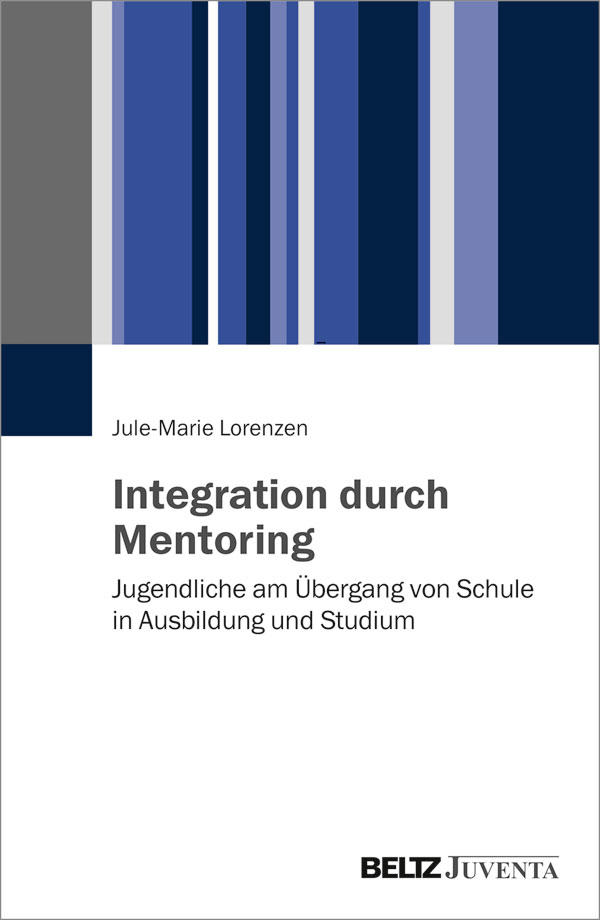 |
Lorenzen, Jule-Marie (2017): Integration durch Mentoring. Jugendliche am Übergang von Schule in Ausbildung und Studium. Weinheim und Basel, Beltz Juventa.
|
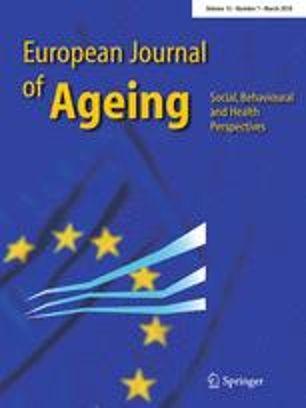 |
Stypińska, J. and Gordo, L.R. (2017): Gender, age and migration: an intersectional approach to inequalities in the labour market. European Journal of Ageing, 1-11.
|
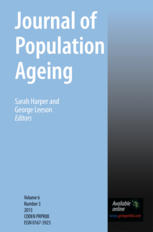 |
Stypińska, J. (2017): The Enterprising Self: a Panacea for all or New Fictitious Social Role for Older Adults? The Analysis of European Polices for Senior Entrepreneurship. In: Journal of Population Ageing, 1-23.
|
| |
Trappmann, Vera und Valizade, Danat (2017): Out of work and low on enthusiasm: young Germans are tuning out of politics.
|
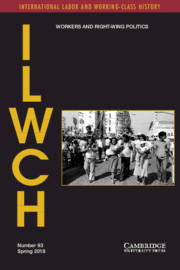 |
Özkiziltan, D. (voraussichtlich Herbst 2017): Turkish Industrial Relations at the Crossroads: Revisiting the History of Industrial Relations in the Early Post-War II Period, Journal of International Labour and Working Class History.
|
| |
Varga, M. (2017): Cash rather than contract: The re-emergence of traditional agrifood chains in post-communist Europe. Journal of Rural Studies 53, 58-67.
|
| |
Varga, M. (2017): Russia’s far-right violence wave: Tracing the development of terror in a national-socialist organization. In: Problems of Post-Communism.
|
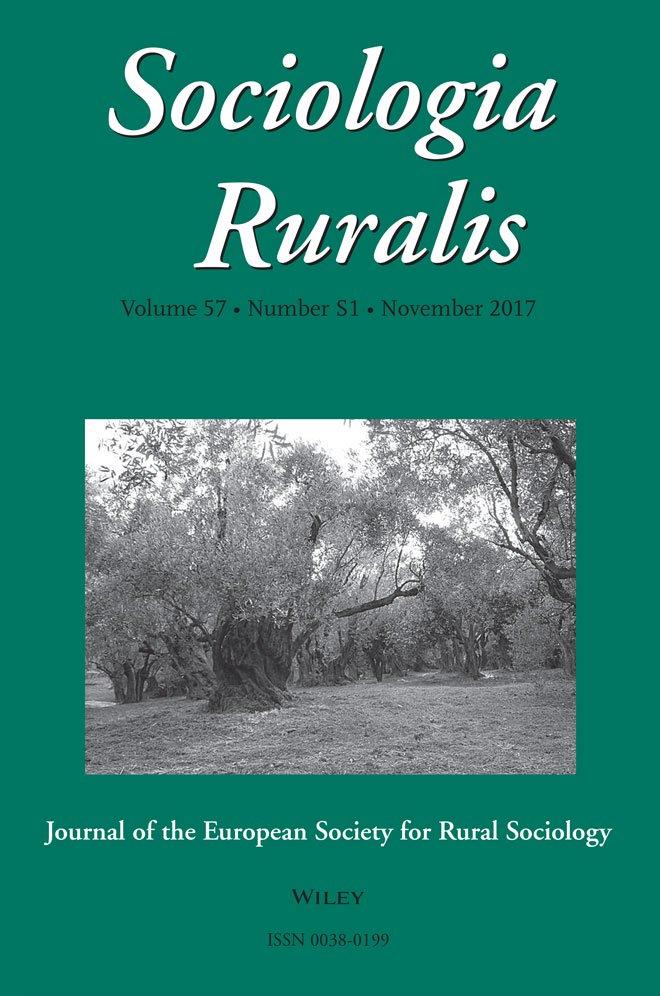 |
Varga, M. (2016): Small Farms Survival and Growth: Making Investments Despite Credit Constraints. In: Sociologia Ruralis.
|
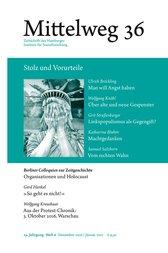 |
Bluhm, K. (2016): Machtgedanken. Ideologische Schlüsselkonzepte der neuen russischen Konservativen. In: Mittelweg 36, Zeitschrift des Hamburger Instituts für Sozialforschung 25(6), 56-75.
|
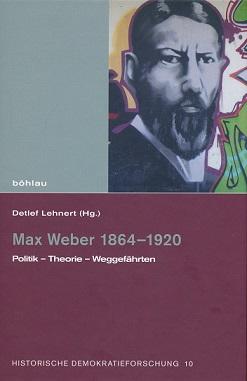 |
Bluhm, H. & Bluhm, K. (2016): „Bürokratischer Kältetod“ – Max Webers sozialwissenschaftliche Diagnose und sein anti-progressistischer Dekadenzglaube. In: Lehnert, Detlef (Hg.): Max Weber 1864-1920. Politik - Theorie - Weggefährten. Köln: Böhlau Verlag GmbH & Cie (Historische Demokratieforschung. Schriften der Hugo-Preuss-Stiftung und der Paul-Löbe-Stiftung, 10), 217-246.
|
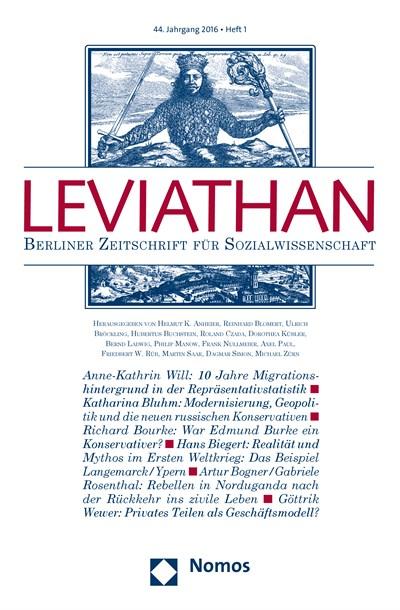 |
Bluhm, K. (2016): Modernisierung, Geopolitik und die neuen russischen Konservativen. In: Leviathan, Berliner Zeitschrift für Sozialwissenschaften 44(1), 36-64.
|
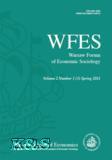 |
Bluhm, K.; Trappmann, V. (2015): Corporate Social Responsibility and Executives’ Attitudes in Germany, Poland and Hungary, In: Warsaw Forum of Economic Sociology 6:2(12), 7-36.
|
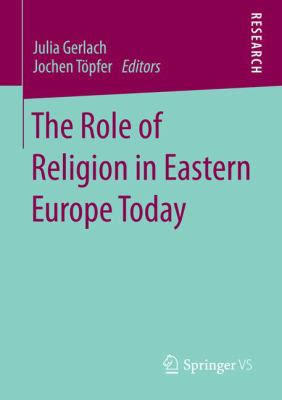 |
Töpfer, J. (2015): Concepts of Religion and the State: An Application to South-Eastern Europe In: Julia Gerlach and Jochen Töpfer (eds.): The Role of Religion in Eastern Europe Today; Springer VS, 21-54.
|
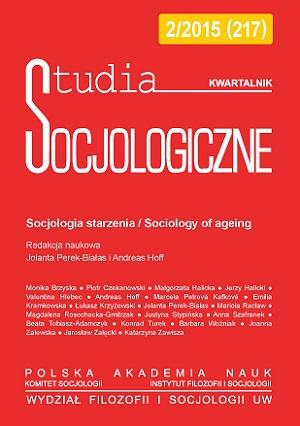 |
Stypinska, J. (2015): Starszy pracownik na rynku pracy w Polsce: 40+? 50+? Czy tylko „plus”?,(Older worker on a Polish labour market: 40 +? 50+ ? or just a "plus"? Studia Socjologiczne (vol 2), 143-165.
|
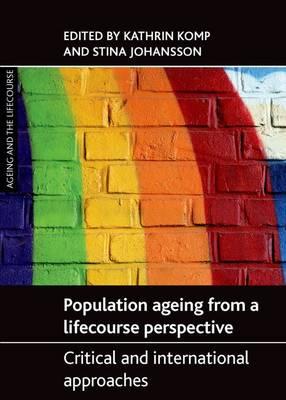 |
Stypinska, J.; Perek-Bialas, J. and Turek, K. (2015): Social-economic status in ageing Poland: A case of cumulative advantages and disadvantages In: Komp, K. and Johansson, S. (Hg.): Population Ageing from a Lifecourse Perspective.
|
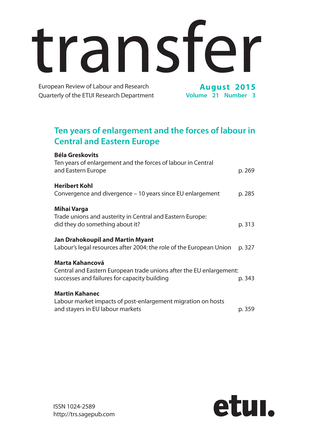 |
Varga, M. (2015): Trade unions and austerity in Central and Eastern Europe: Did they do something about it? Transfer: European Review of Labour and Research 21(3), 313-326.
|
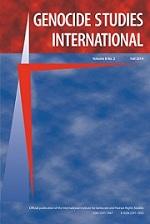 |
Hofmann, T.: The Genocide against the Ottoman Armenians: German Diplomatic Correspondenceand Eyewitness Testimonies. In: ”Genocide Studies International", 9, 1 (Spring 2015), 22-60.
|
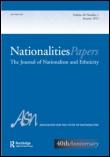 |
Varga, M. (2014): Hungary's "Anti-Capitalist" Far Right: Jobbik and the Hungarian Guard. Nationalities Papers 42(5): 791-807.
|
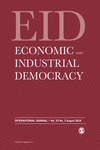 |
Varga, M. (2014, with Annette Freyberg-Inan): Post-communist state measures to thwart organized labor: The case of Romania. Economic and Industrial Democracy 35, doi: 10.1177/0143831X14548770 ![Titel anhand dieser DOI in Citavi-Projekt übernehmen]() ![Titel anhand dieser DOI in Citavi-Projekt übernehmen]() ![Titel anhand dieser DOI in Citavi-Projekt übernehmen]() ![Titel anhand dieser DOI in Citavi-Projekt übernehmen]() ![Titel anhand dieser DOI in Citavi-Projekt übernehmen]() ![Titel anhand dieser DOI in Citavi-Projekt übernehmen]() ![Titel anhand dieser DOI in Citavi-Projekt übernehmen]() ![Titel anhand dieser DOI in Citavi-Projekt übernehmen]() ![Titel anhand dieser DOI in Citavi-Projekt übernehmen]() ![Titel anhand dieser DOI in Citavi-Projekt übernehmen]() ![Titel anhand dieser DOI in Citavi-Projekt übernehmen]() ![Titel anhand dieser DOI in Citavi-Projekt übernehmen]() ![Titel anhand dieser DOI in Citavi-Projekt übernehmen]() ![Titel anhand dieser DOI in Citavi-Projekt übernehmen]() ![Titel anhand dieser DOI in Citavi-Projekt übernehmen]() ![Titel anhand dieser DOI in Citavi-Projekt übernehmen]() ![Titel anhand dieser DOI in Citavi-Projekt übernehmen]() . .
|
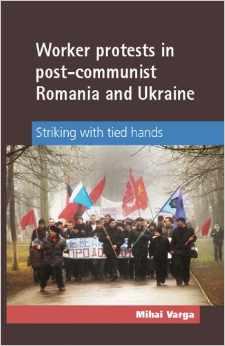 |
Varga, M. (2014): Worker Protests in Post-communist Romania and Ukraine: Striking with tied hands. Manchester, Manchester University Press. 272 S.
|
 |
Savvidis, T. (2013): Post-Soviet Migration from Central Asia to Russia: Specifics and Perception. Presented at the conference «Ислам и Россия: культурные традиции и современные вызовы», St. Petersburg.
|
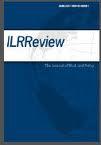 |
Varga, M. (2013): Strategies of Disruption: Factory Unions Facing Asset-Strippers in Post-Communist Romania and Ukraine.Industrial and Labor Relations Review, vol. 66(5), p. 1212-1233.
|
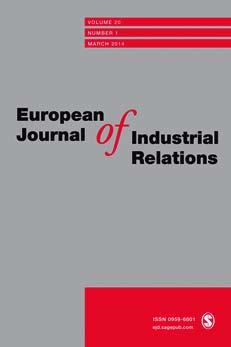 |
Varga, M. (2013): Refocusing studies of post-communist trade unions. European Journal if Industrial Relations, vol. 19(2), p. 109-125
|
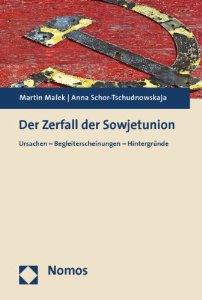 |
Hofmann, T.: Armenien und der Zerfall der UdSSR. In: Malek, Martin; Schor-Tschudnowskaja, Anna (Hg.): Der Zerfall der Sowjetunion: Ursachen - Begleiterscheinungen – Hintergründe. Baden-Baden: Nomos, 2013, 381-401.
|
 |
Bluhm, K.; Martens, B.; Trappmann, V. (Hrsg) (2013): Business Leaders and New Varieties of Capitalism in Post-Communist Europe. Routledge. 272 S.
|
|
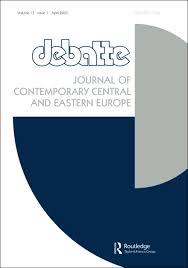
|
Varga, M. (2013): “Working-Class Heresies”: Ideology in Protests of Ukrainian Workers During the World Economic Crisis 2009–2012. Debatte:Journal of Contemporary Central and Eastern Europe, Volume 20 (2-3), p. 107-124.
|
|
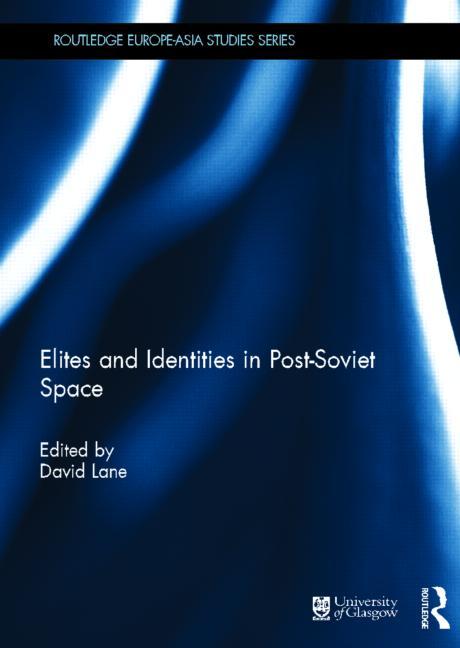
|
Lane, D. (Hrsg.) (2012): Elites and Identities in Post-Soviet Space. Routledge Europe-Asia Studies. 214 S.
|
|
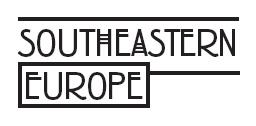
|
Varga, M.; Freyberg-Inan, A. (2012): The Threat of Selective Democracy: Popular dissatisfaction and exclusionary strategy of elites in East Central and Southeastern Europe. South-Eastern Europe 36(3): p. 349-372.
|
|
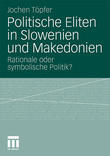
|
Töpfer, J. (2012): Politische Eliten in Slowenien und Makedonien. Rationale oder symbolische Politik? VS Verlag für Sozialwissenschaften. 359 S.
|
|

|
Hofmann, T.: Religion in Armenien. In: Porsche-Ludwig, Markus; Bellers, Jürgen (Hg.): Handbuch der Religionen der Welt. Bd. 2. Nordhausen: Verlag Traugott Bautz GmbH, 2012, 987-995.
|
|

|
Bluhm, K.; Martens, B.; Trappmann, V. (2011): Business Elites and the Role of Companies in Society. A Comparative Study in Poland, Hungary and Germany. In: European-Asia Studies, 63 (6), 1011-1032.
|
|
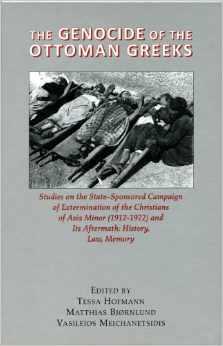
|
Hofmann, T.; Bjørnlund, M.; Meichanetsidis, V. (Eds.): Genocide against the Ottoman Greeks: Studies on the State-Sponsored Campaign of Extermination of the Christians of Asia Minor, 1912-1922 and Its Aftermath: History, Law, Memory. New York: Melissa International Ltd., 2011. 512 p.
|
|
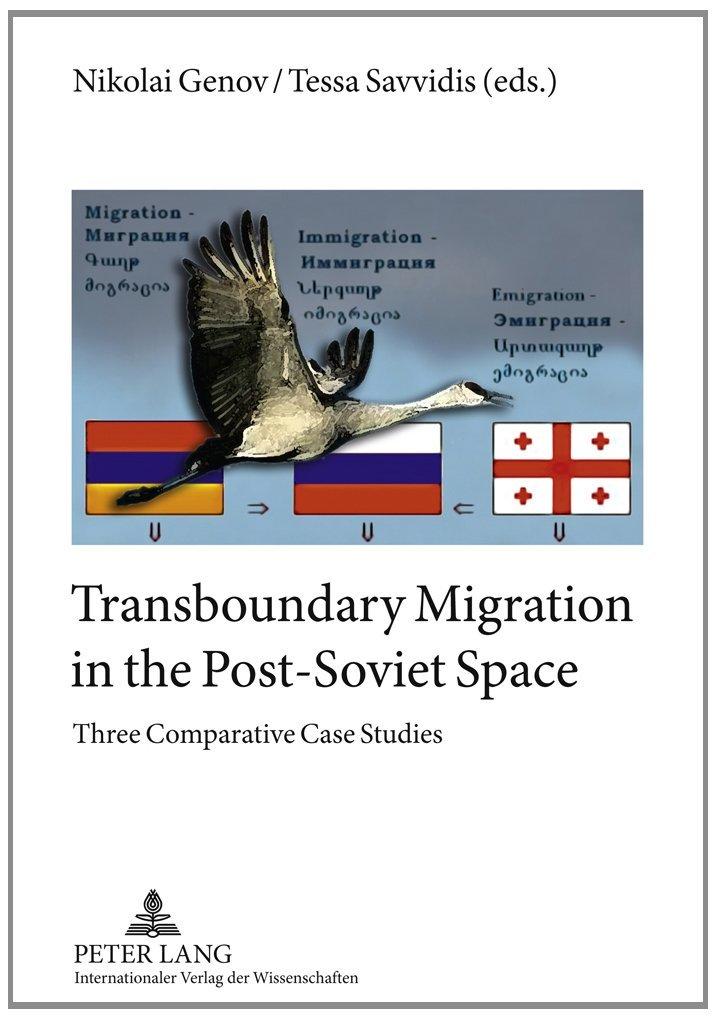
|
Genov, N.; Savvidis, T. (Eds.): Trans-Boundary Migration in the Post-Soviet Space: Three Comparative Case Studies. Frankfurt/Main: Peter Lang, 2011. 245 p.
|
|
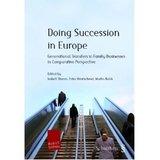
|
Bluhm, K.; Martens, B. (2011): The Restoration of a Family Capitalism in East Germany and Some Possible Consequences. In: I. Stamm; P. Breitschmidt; M. Kohli (Hg.): Doing Succession in Europe. Generationl Transfers in Family Businesses in Comparative Perspective. Zürich: Schulthess, 129-152.
|
| |
Hofmann, T.: One Nation, Three Sub-Ethnic Groups: The Case of Armenia and her Diaspora. With a Foreword by Prof Dr Gevorg Poghosyan. Yerevan: Institute of Philosophy, Sociology and Law of the National Academy of Sciences of the Republic of Armenia, 2011. 191 S.
|
|
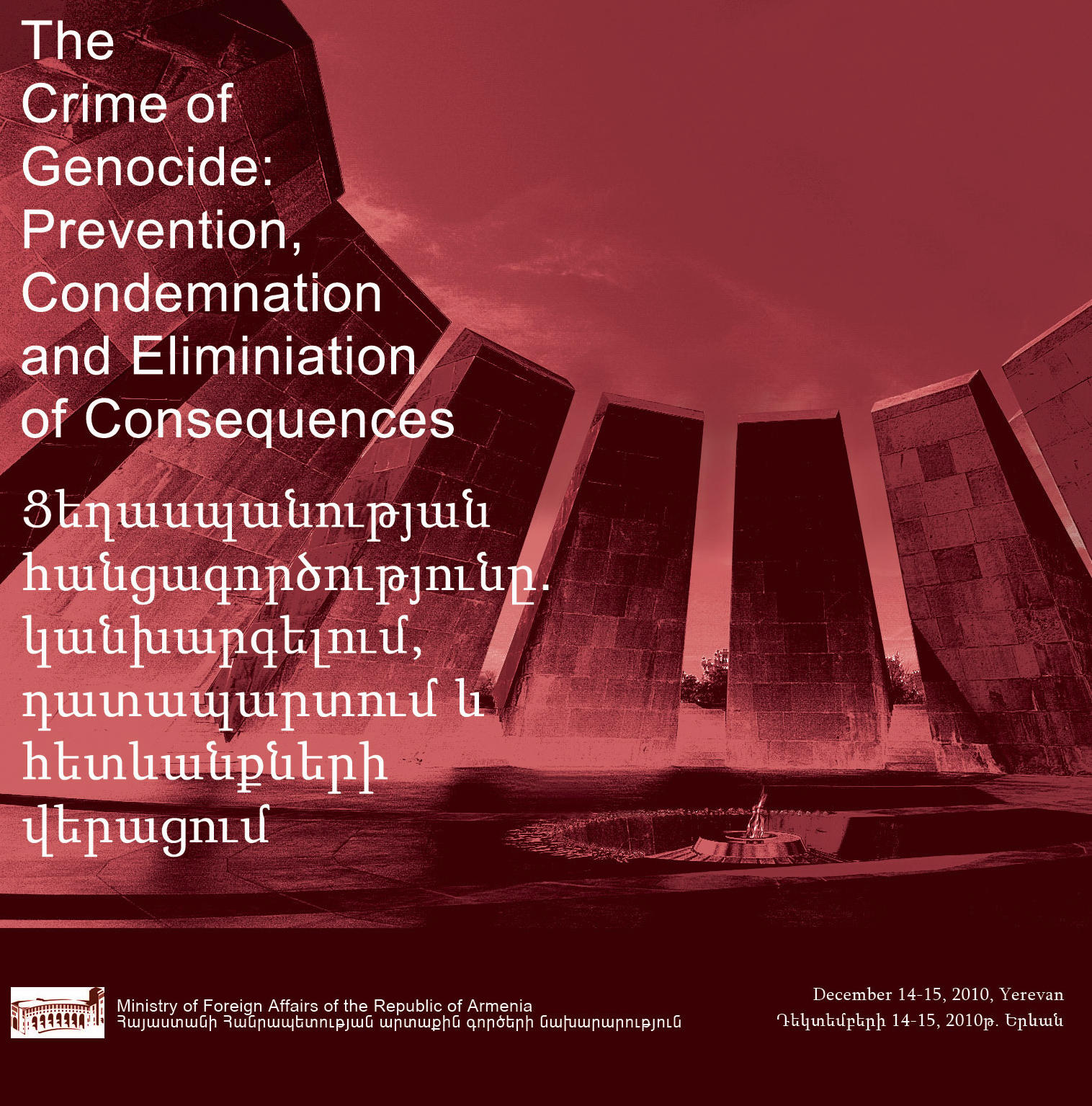
|
Hofmann, T.: ‚Cold Cases‘ of Genocide: The Meaning and Limits of Genocide Recognition by Legislative Bodies. In: Harutyunyan, Aram (Ed.): The Crime of genocide: Prevention, Condemnation and Elimination of Consequences. Proceedings of International Conference Yerevan, December 14-15, 2010. Yerevan: Ministry of Foreign Affairs of the Republic of Armenia, 2011, 64-73
|




















































